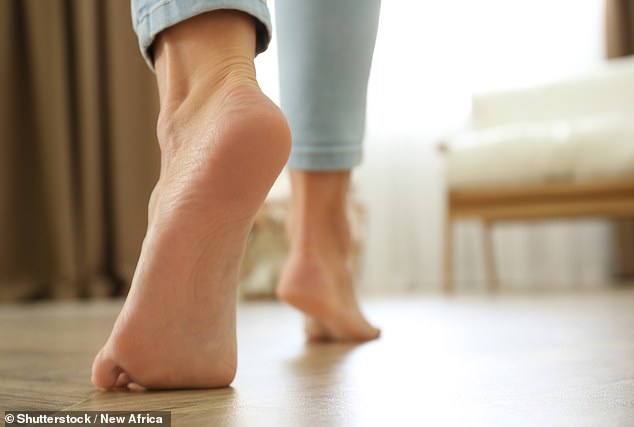DR. ELLIE CANNON: Are my allergies caused by a bout of food poisoning?
A few years ago I had a bad case of food poisoning and since then I have developed wheat and lactose intolerance, as well as IBS. I also suffer from small bumps in my lips, which seem baffling to my dentist and doctor. I have read that something called lipid transfer protein allergy causes this symptom. What do you think?
Food poisoning and other stomach flus can cause ongoing problems, such as lactose intolerance – a reaction to the sugars in milk and other dairy products. However, it usually goes away. Irritable bowel syndrome (IBS) and a similar condition with which it is often confused, small intestinal bacterial overgrowth (SIBO), are also seen.
SIBO causes diarrhea, pain, nausea and even weight loss due to an overgrowth of bacteria in parts of the intestine. This usually requires treatment, after tests with a gastroenterologist.
ASK DR. ELLIE: A few years ago I had severe food poisoning and have since developed wheat and lactose intolerance, as well as IBS.
Lipid transfer proteins are found in foods such as nuts, seeds and some grains, along with the peels and seeds of certain fruits such as grapes and apples.
An allergy to it is unusual and causes swelling of the lips and tongue, hives on the skin and vomiting. In rare cases, a more severe anaphylaxis reaction may occur, causing the airways to swell. Those known to suffer from this should carry an EpiPen.
Raised bumps in the mouth are not a recognized symptom of lipid transfer protein allergy.
The only way to find out is through a referral to an NHS allergy clinic where tests can be carried out, but these clinics are few and far between. Another option would be to keep a food diary and see if eating specific things causes problems.
I’ve been suffering from shortness of breath and have had to give up swimming, something I’ve done regularly since I was a teenager (I’m now in my late 70s). I also have trouble walking very far. A chest x-ray, lung tests and angiogram were normal. I take statins, thyroxine and omeprezole. Could these be causing my problem?
There are many causes of shortness of breath, and in someone older it may take some time and a few tests to reach a diagnosis. A GP can arrange heart tests, lung scans and blood tests.
Smoking-related lung problems such as asthma or rarer lung diseases including bronchiectasis – where the airways of the lungs widen – all result in shortness of breath.
It is also important to recognize that chest x-rays do not always pick up all lung conditions and may even miss lung cancer. For this reason, a CT scan may sometimes be necessary.
Heart problems also cause shortness of breath, including abnormal heart rhythm such as atrial fibrillation or heart failure. We prescribe diuretics – also called water tablets – for heart failure, which relieve the symptoms, but many people don’t like taking them because they can cause frequent trips to the toilet. If you stop urinating, the shortness of breath caused by heart failure may return.

ASK DR. ELLIE: I’ve been suffering from shortness of breath and have had to give up swimming, something I’ve done regularly since I was a teenager (I’m now in my late 70s). I also have trouble walking very far (Stock Image)
Other causes may include anemia or anxiety. There are other drug options for heart failure that you can discuss with your doctor.
Statins and the drugs thyroxine and omeprazole would not normally cause shortness of breath as a side effect.
My husband has been suffering from foot pain for almost two years. He has visited a GP twice, a physiotherapist, a podiatrist, had tests and scans – which revealed something called a neuroma – had painful steroid injections in his foot, bought the recommended trainers and insoles, tried acupuncture, massage and reflexology. ..and none of these helped. Any ideas?
Foot pain can be painful because it prevents people from living a normal life.
A common cause is Morton’s neuroma, a thickening of the tissue surrounding the nerves between the toes.
Patients often describe a burning or stabbing pain, or that it feels like there is a stone in their shoe. Some may experience numbness or tingling.
It usually begins after strenuous or prolonged exercise, which puts pressure on the foot and irritates the nerves.
We know it is more common in people who are overweight or have rheumatoid arthritis.
Unfortunately, it can get worse over time.
Wide shoes, soft soles, orthotics – custom-made shoe inserts – and painkillers such as paracetamol or ibuprofen help.
From a specialist, treatment would include injections of steroids or alcohol, and also something called radiofrequency ablation – which uses heat to treat the nerve so that it can no longer send pain signals. There are also numerous surgical options that are usually performed by an orthopedic surgeon.
Decompression surgery involves removing tissue around the nerve to relieve pressure or remove the nerve altogether. This takes away the pain, but can also cause permanent numbness, so patients must weigh the risk of this against the benefit of reduced pain.

ASK DR. ELLIE: My husband has been suffering from foot pain for almost two years
